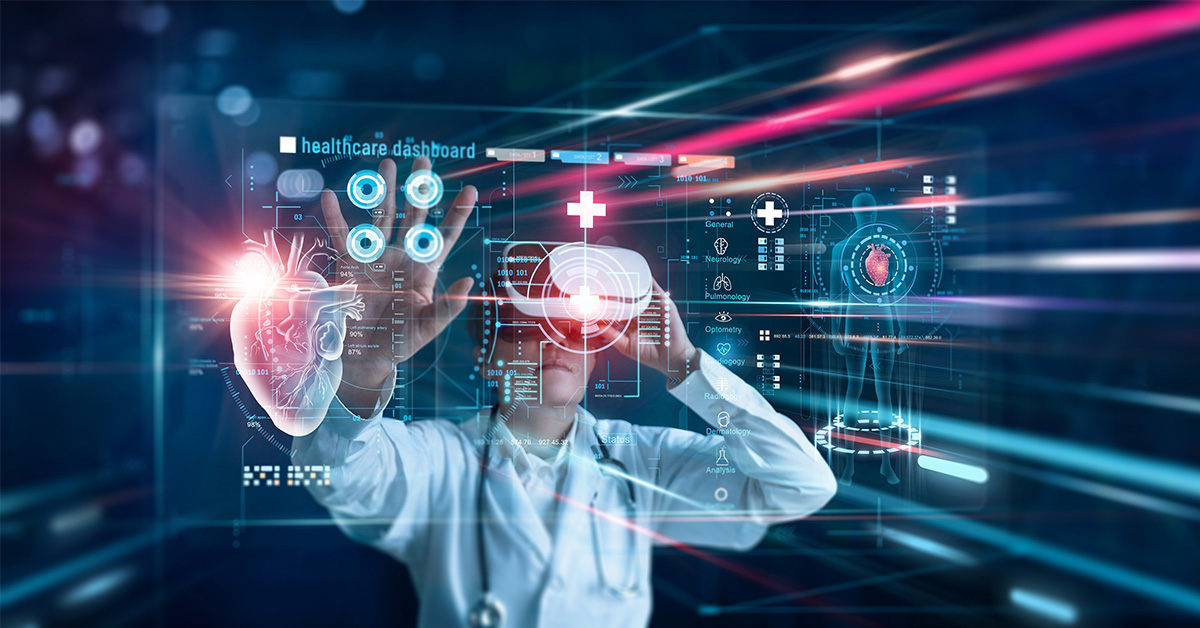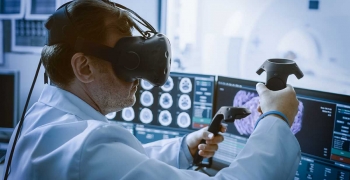It is astounding how a 1966 film stayed with me. A crew of medical professionals were miniaturized to venture inside a scientist’s brain. The goal? To non-invasively remove a fatal blood clot.
While we have not ‘yet’ managed to shrink ourselves for internal expeditions, the integration of AI and Machine Learning (ML) in medical diagnostics represents a 'fantastic voyage' in its own right.
In a field where precision is paramount and errors can be fatal, incorporation of AI analytics and ML's pattern recognition capabilities into diagnostics enable explorations into cellular structures and genetic codes through near-non-invasive routes, marking the dawn of a new era in healthcare.
For decades, diagnostics has heavily relied on the expertise of medical professionals to interpret symptoms and test results, integrating years of learning with current medical knowledge. However, there are limitations to what can be perceived by the human eye that have often paved way for errors to creep in.
In case of AI and ML, such limitations are not applicable — they can process vast datasets comprising of millions of patient records, image scans, and research results in minutes. This lightning-speed analysis not only accelerates the diagnostic process but also offers a layer of precision that is far beyond human capabilities.
Imaging Diagnostics
AI-driven algorithms are now assisting radiologists to interpret medical images such as X-rays, CT scans, and MRIs with unprecedented accuracy. There is no room for human fatigue or oversight. Whether it is identifying tumors or spotting fractures, if a medical image contains an anomaly, AI will most likely detect it, regardless of the order or volume of scans needing analysis.
Pathology
Pathologists are no longer limited to their microscopes. AI tools are now able to identify and classify disease patterns in tissue slides with staggering efficiency. This collaboration between pathologists and AI reduces the time it takes to get vital diagnostic information to the patient. In fields where time can literally translate to saving lives, AI's speed is not just groundbreaking but also crucial.
Predictive Diagnostics
Another promising domain for AI and ML lies in predictive diagnostics. By sifting through data from multiple sources, including patient health records, genetic profiles, and lifestyle patterns, AI can now predict the likelihood of developing certain illnesses. This predictive ability is invaluable in preventive healthcare, empowering healthcare professionals and patients to make informed decisions that can potentially avoid future health crises.
The applications of AI and ML in diagnostics are evolving at an unprecedented pace. The possibilities are as exciting as they are life changing.
Personalized Medicine
Personalized medicine is the future, and AI is its architect. By harnessing AI along with ML's predictive models to interpret data on an individual level, medical practitioners are beginning to tailor treatment plans that address a patient's unique circumstances, leading to treatment that is more effective and less invasive.
Streamlining Patient Care
Efficiency in diagnostics is just as crucial as accuracy. With the advent of AI and ML, we are witnessing a paradigm shift in the healthcare narrative. It is no longer a prolonged saga of reacting to diseases but proactively, accurately, and efficiently diagnosing and treating patients. Early detections mean more successful treatments, which ultimately translate to improved healthcare outcomes on a global scale.
Reducing Costs and Strain on Systems
By enabling early detections and providing accurate prognoses, AI and ML are significantly reducing the costs associated with prolonged illnesses and complex treatments. Resource optimization through AI-driven diagnostics also alleviates the strain on healthcare systems, ensuring that high-standard medical care is accessible and sustainable.
As AI revolutionizes imaging-based medical diagnostics, this will have substantial and multifaceted business benefits.
- Cost Efficiency: AI and ML can automate routine tasks, reducing the need for human intervention and thereby lowering operational costs.
- Increased Revenue: By improving diagnostic accuracy, AI and ML can help healthcare providers avoid costly misdiagnoses and unnecessary treatments. This can lead to increased patient trust and, consequently, a larger patient base.
- Competitive Advantage: Early adopters of AI and ML technologies can gain a competitive edge by offering superior diagnostic services. This can enhance their reputation in the market and attract more patients.
- Innovation and Growth: The adoption of AI and ML can spur innovation, leading to the development of new services and products. This can pave the way for new revenue streams and drive business growth for device developers and manufacturers.
The partnership of AI and ML with diagnostics is remarkable, and its impact on healthcare is exceptional. What we are witnessing is not a replacement of the human touch but an enhancement of it. These technologies are empowering healthcare professionals to provide better care, enabling patients to take control of their health, and pushing the boundaries of medical science further than we could have ever imagined.
The combination of human expertise and artificial intelligence is a formidable one. Together they are reshaping the healthcare landscape. In the end, it is not just about revolutionizing diagnostics; it is about revolutionizing lives. The future is here, and it is smarter than we could have dreamed.




